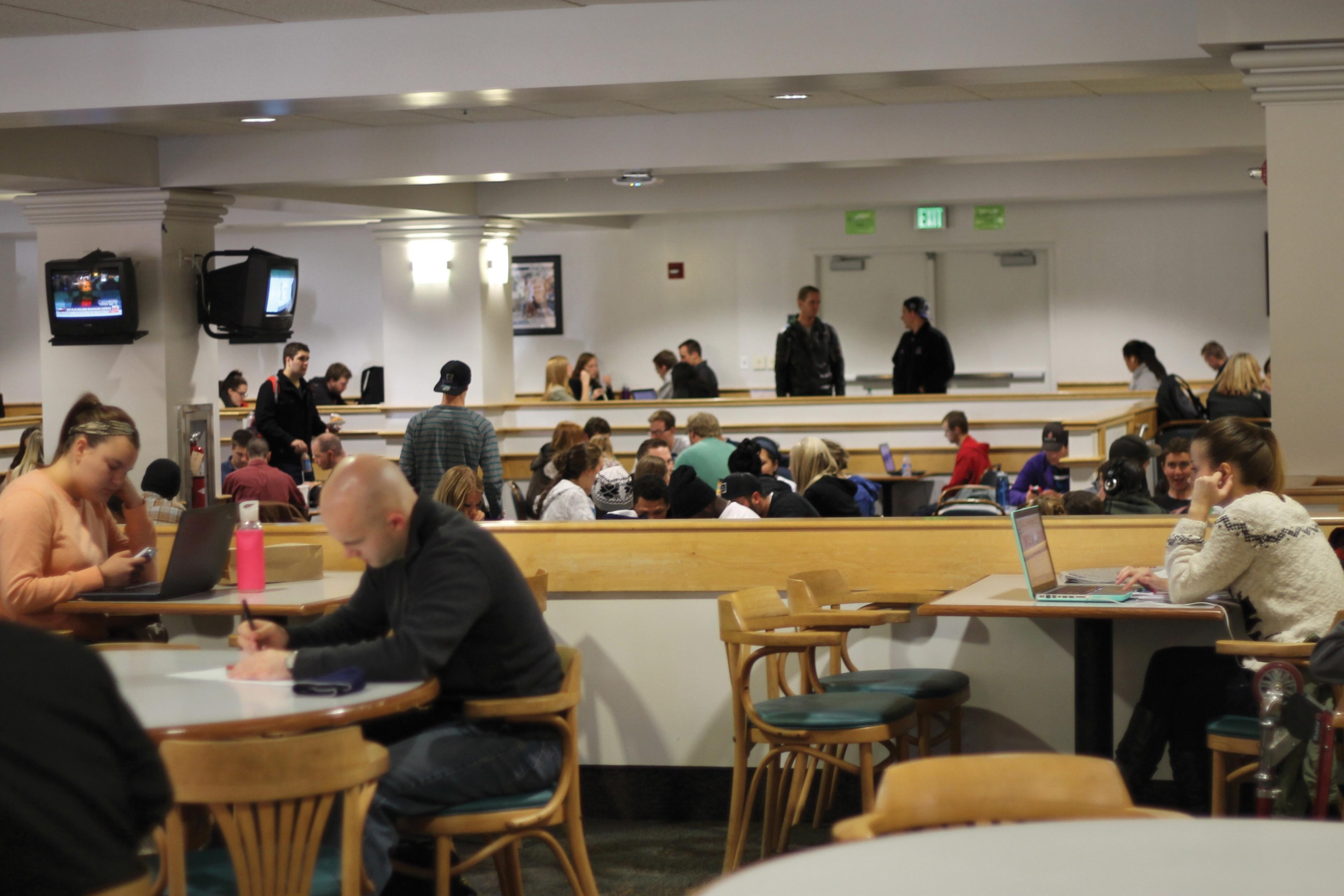Lunch with a legislator
Members of the ASUSU Executive Council took to the campus cafeterias to get feedback from students.
ASUSU President Doug Fiefia bought meal cards for Executive Council members so they could eat lunch with students and ask them about comments or complaints they had about USU.
To pay for the cards, Fiefia used money from his presidential enhancement budget. He said the ASUSU president has two budgets: a presidential enhancement budget and a normal president’s budget. Enhancement money comes directly from USU President Stan Albrecht, while the regular budget comes from student fees.
“What that money is given to the student body president is for is to enhance student life in any way, shape or form,” Fiefia said. “That’s where this money would be coming out of, and it’s non-student fees.”
The idea mirrors Fiefia’s candidate platform, where he called for “bridging the gap between the student body, ASUSU, and the administration,” according to the ASUSU website.
“One of the things that I promised students was that the officers would be in the trenches and that I would personally be in the trenches finding out what the real concerns were,” Fiefia said.
Fiefia said he got the idea for meal cards from James Morales, vice president of Student Services.
“Once a month, they’ll (Morales and his staff) go down to have meals with students just to get to know them, find out what concerns are, and so that’s kind of where I got the idea,” Fiefia said. “I think it’s a great way to incentivize student leaders to get out there and be in the trenches.”
Fiefia bought cards for himself and Executive Vice President Emily Esplin, Student Advocate VP Daryn Frischknecht, Programming VP Thomas Rogers, Service VP Kevin Meacham and Administrative Assistant Trevor Olsen.
“I just went to find students who were sitting by themselves,” Olsen said. “I introduced myself, just chatted with them a little bit about school and things, and then I asked them what they like about Utah State and what things they would change if they could.”
Fiefia and Frischknecht have not used their cards yet, but the other four Executive Council members have had successful lunches with positive feedback from students, according to Fiefia.
“So far, the feedback that I’ve gotten back from students and from officers is that it’s great, that they love the idea of having officers go and have meals with them and that they can just say all their concerns and suggestions in a meal,” Fiefia said.
Fiefia said they are going through a “trial run” of lunch sessions. The cards are guest dining cards with enough money on them for one meal, or close to $10, according to Olsen. Fiefia said he would like to continue the meals with students if he keeps getting positive feedback.
Olsen said Fiefia wanted to do a trial run first with a limited number of cards so that if the idea proved unsuccessful, it would not be a waste of money.
“The reason I feel like it is a good use of money is because we’re using it to get to know students, to get on their level, to interact with them more personally and to get their voice and to listen to them,” Olsen said.
Rogers said he used his meal card last week and said it was a cool experience.
“Having us randomly go in and eat with students and bounce from table to table and just asking students what they like about Utah State University – as well as what they would like to improve – was really cool,” Rogers said. “It wasn’t them having to come to us, it was actually us making the approach to come to them.”
Twitter: @JungblutEric

